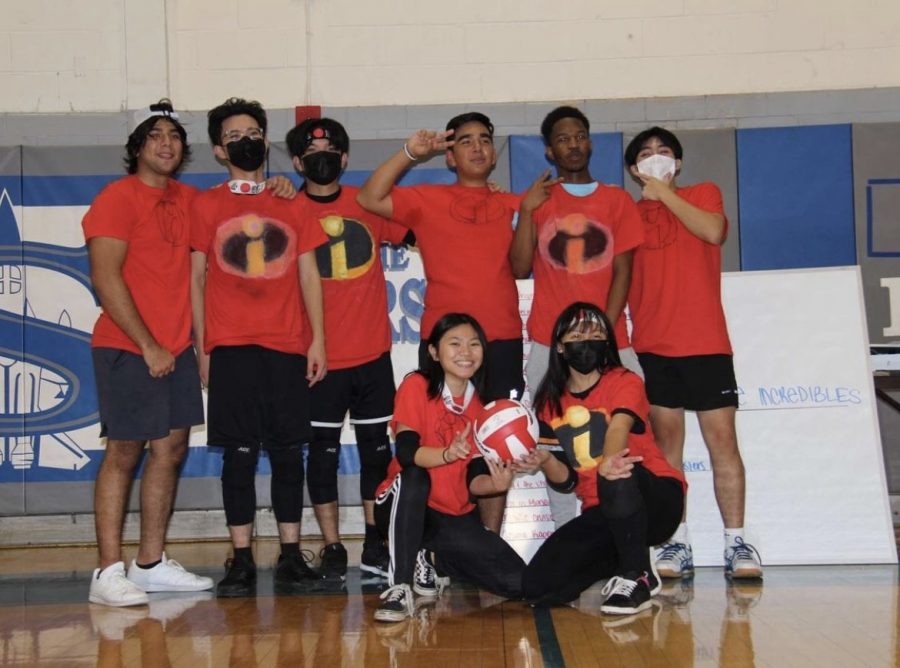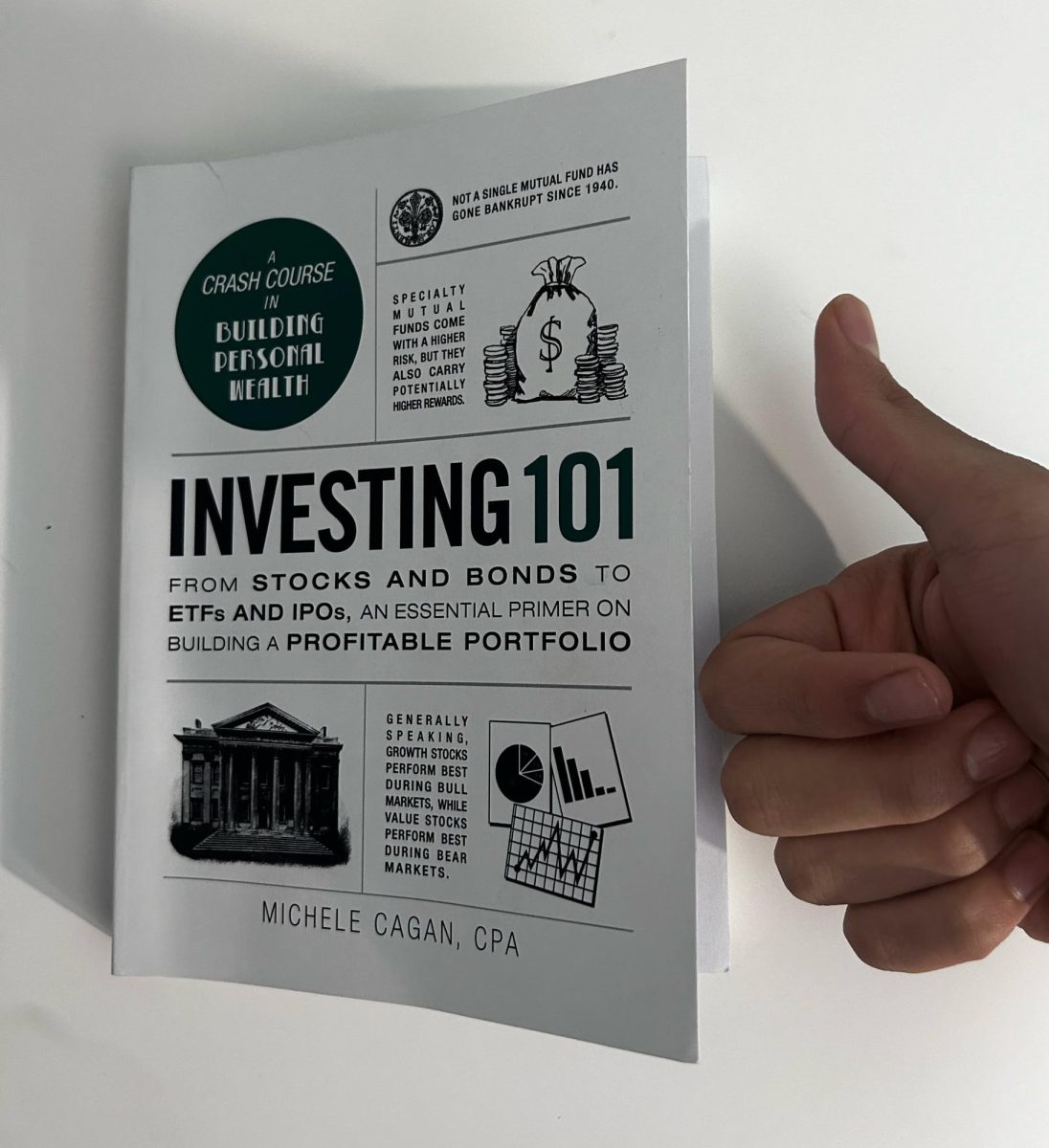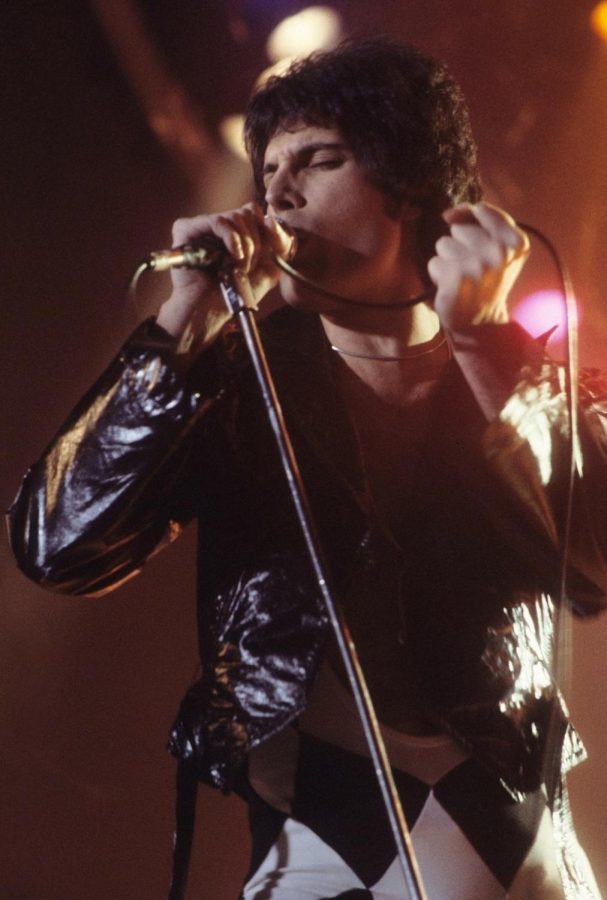Bohemian Rhapsody: an epic finale despite obstructed timeline
Is historic fallacy justified to capture the essence of Queen in the film Bohemian Rhapsody?
December 7, 2018
Queen transcends through the movie screens with their portrayal in Bohemian Rhapsody. When the movie was released on November 2, I was very skeptical at first to entrust an over-dramatic Hollywood crew to accurately depict a historical narrative. However, when I learned that the Queen’s current band members – Brian May and Roger Taylor – had been involved behind the scenes, it seemed more promising.
With the movie being 2 hours and 13 minutes long, it was admittedly in a bit of disarray at first. With jumpy introductory scenes about how the band got together, it only really engaged my full attention and interest once the plot had established the band to the public eye. Before that, it was just a matter of introducing the characters and relationships so that the ball could get rolling.
After seeing it, I can confirm that my predictions of over-dramatization and inaccuracy were correct. To their credit, capturing the essence of conversations and relationships between people is hard to accomplish on the big screen. It was more of a surprise when I learned that they had altered the real timeline of Queen’s history in order to match the movie’s narrative. For one, the movie ends with Live Aid, a fundraising concert meant to raise money for Ethiopia. During the rehearsals, Freddie Mercury (played by Rami Malek) opens up about his AIDS diagnosis and that he does not have much time left. In reality, he was diagnosed with AIDS in 1987, two years after the concert. This was just one example of the altered history and facts of the movie. In this case, it was so that the movie could have a grand finale like Live Aid – with Queen’s performance considered the best in all of rock history – yet still address the complications with Freddie Mercury’s health.
Despite areas of dramatic fallacies, I must say that it was still very emotionally capturing and entertaining. While some character portrayals may not have been properly captured, the movie depicted Queen as the pedestal of transcendence from traditional music. Their experimental style and Freddie Mercury’s flamboyant performances addressed a certain niche for their audience. Repeatedly throughout the movie, the band members recognize themselves as a representation of those that don’t belong. They prove this to be correct with the risky release of their song “Bohemian Rhapsody”, which was at first considered a flop by many harsh critics. This was certainly a sign that Queen was unique and not fit for the average rock fan, and they, therefore, changed rock music significantly with their rock opera and genre experimentation.
The movie does not go over just the band itself, but specifically the legend Freddie Mercury. His change can be seen throughout the movie as he explores his sexuality and values. His spiral downwards starts once he confesses to his fiancee Mary Austin that he is bisexual, ending the relationship. Later during a band conference session, the movie changes to a sort of fish eye view of interviewers bombarding Freddie Mercury on questions about his personal life. With pestering questions about his health, sexuality, and AIDS, the focus of the lens becomes more and more blurry and sporadic to the point that the screen abruptly cuts to the next scene. This seemed to be a symbol of Mercury’s personal problems interfering with his functionality and mentality. At one point, Mary (his ex-fiancee) enters his home and finds drugs splayed out on the table, with Freddie Mercury replying by saying “being human is a condition that requires a little anesthesia”.
Eventually, he does end up returning to his band members and family – originally thinking that he was an outcast from them because he had different values from them. They reconnect and perform in the ultimate rock finale – the Live Aid concert. With the powerful connection between band and audience, the final song of the movie is the slowed beginning of “Don’t Stop Me Now” by Queen, and it was an emotional end to the segment. It was a sweet symbol for the evolution of the band. In particular to Freddie Mercury, it conveyed his development and recovery from a life crisis. Eventually he moves closer to the people that really love him, while at the same time having a constant bitter reminder of his deteriorating health.
Now while it was a very sweet, sporadic, and passionate story, was sacrificing historical accuracy justified in order to capture the essence of Queen? Did it take away from the enjoyment or add to the narrative? Either way, the project had been in the planning stage for around 8 years, and its final debut was certainly not something to skip over, due to its epic finale.






















